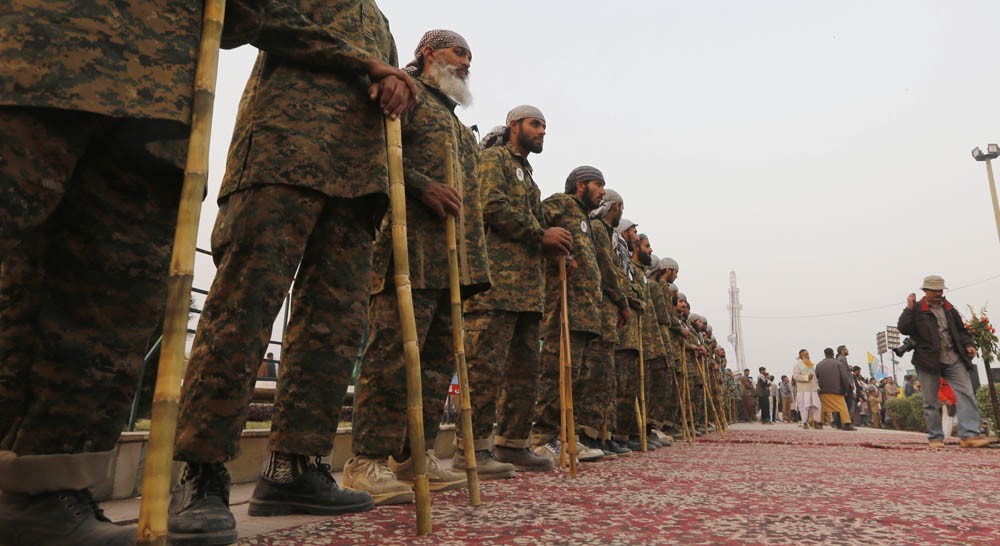
Deradicalisation necessitates the gradual depoliticisation of religious identities for a peaceful society

In Pakistan, the orgy of religious extremism manifests itself across a large canvas. Religion is used as a vehicle of conflict regardless of the fact whether the goal is religious or not. From burning of a Christian couple in a brick kiln in Kasur district for allegedly profaning the Holy Quran to the brutal murder of an innocent six year old Hazara girl in Quetta on October 31 and attacks on Zikris in southern Balochistan to Hazara genocide in Quetta and sectarian killings in Karachi, all are instances of zealotry going mad.
The September last year devastating twin suicide attack in All Saints Church Peshawar, leaving 90 dead and over a hundred injured, was the deadliest attack against Christian fraternity in Pakistan. This article primarily sheds light on Islam’s attitude towards non-Muslim citizens.
What is Islam’s take on tolerance towards its non Muslim citizenry?
In Islam, tolerance is to respect the religious difference though not approving it. Concretely, for instance it is like this that although Islam prohibits drinking for Muslims, it allows its non-Muslims community to consume it if their religion does not forbid doing so. Islam’s attitude towards non-Muslim is, "for you is your faith, and for me my faith" (109:6).
Islam is completely against forced conversion. The Holy Quran states, "There is no compulsion in faith. The correct way has become distinct from erroneous"… (2:256). Islam even proscribes reviling the deities of other religions. The Quranic message is "do not revile those who they invoke other than Allah, lest they should revile Allah in transgression without having knowledge…Then to their Lord is their return, after which He shall tell them what they have been doing." (6:108).
Islam is what the Holy Quran and the traditions--sayings and actions--of the Holy Prophet say or demonstrate. Islam jealously guards people’s right to life no matter whether the victim is a Muslim or a non-Muslim. According to the Holy text "…whoever kills a person not in retaliation for a person killed, nor (as a punishment) spreading disorder on the earth, as if he has killed the whole of humankind, and whoever saves the life of a person is as if he has saved the life of whole humankind…. 5: 32). Even when it comes to punishing a guilty for a crime, it is only the government which can carry out the punishment. The irrational vigilante justice finds no place in Islam.
Islam ensures protection of rights to all non-Muslim citizens. The blood of a non-Muslim is as sacred as that of a Muslim. For the killing of a non-Muslim, a corresponding execution in retribution was sanctioned from the time of Prophet (PBUH) down to Hazrat Ali. Ali, the last in line of four Pious Caliphs once said, "Whosoever is our Zimmi (non-Muslim citizen), his blood is as sacred as our own and his property is as inviolable as our own property." Shariah cannot be imposed upon non-Muslim citizens.
Personal affairs of non-Muslim citizens are dealt with according to their own personal laws. They have the right to establish their worship places in towns where they live. Islamic state allows for the non-Muslim right of dealing in wine and pork business if their religion permits them to do so.
A Muslim is a person who submits his will to the will of Allah. "O Mankind…surely, the noblest of you, in Allah’s sight, is the one who is most pious (abstinent from sins) of you…"49:13. Islam imbues its followers with spirit to strive for the best. Here two wrongs never make a right. "And not equal are the good deed and the bad. Repel [evil] by that [deed] which is best; and thereupon the one whom between you and him is enmity [will become] as though he was a devoted friend." (41:34)
In Islam, principles are not only "hear no evil, speak no evil, see no evil" but also think no evil. The Holy Quran directs its followers to "say I seek refuge with the Lord of mankind… from evil of whispering (here it means evil thoughts) both from Satan or Mankind (114:1--6) Like any other faith, Islam is a great religion. Its followers leave a lot to be desired, however.
If Islam is the religion of tolerance and peace then why are we intolerant and violent?
In the context of Pakistan, the politicisation of religion since independence and especially its overt sectarian manifestation during Zia’s rule, decades-long Riyadh and Tehran proxy war for power and influence, and the militarisation of religiosity during the days of Afghan jihad have all given way to violence in the name of religion. The otherwise subtle theological differences came to limelight only to make religious and sectarian identities more stubborn.
How to deradicalise?
The need is to take a leaf out of western book. The lesson is that human societies flourish on toleration. Deradicalisation necessitates the gradual de-politicisation of religious identities. State is better off to perform its worldly functions only. We can be good Muslims without the government telling us how to be one! The government may effectively contain the spoiler role of other states by taking the issue of their involvement in Pakistan at the state level. The government must punish the fanatic gullus who take law into their hands.
We really need an education system which is geared towards instilling diversity, toleration and nonviolence as positive values in the minds of our teeming millions children. The question is why to disrespect our non-Muslim countrymen in the name of a religion which respects their identity? Let us commit to remain tolerant to all human beings regardless of everything.